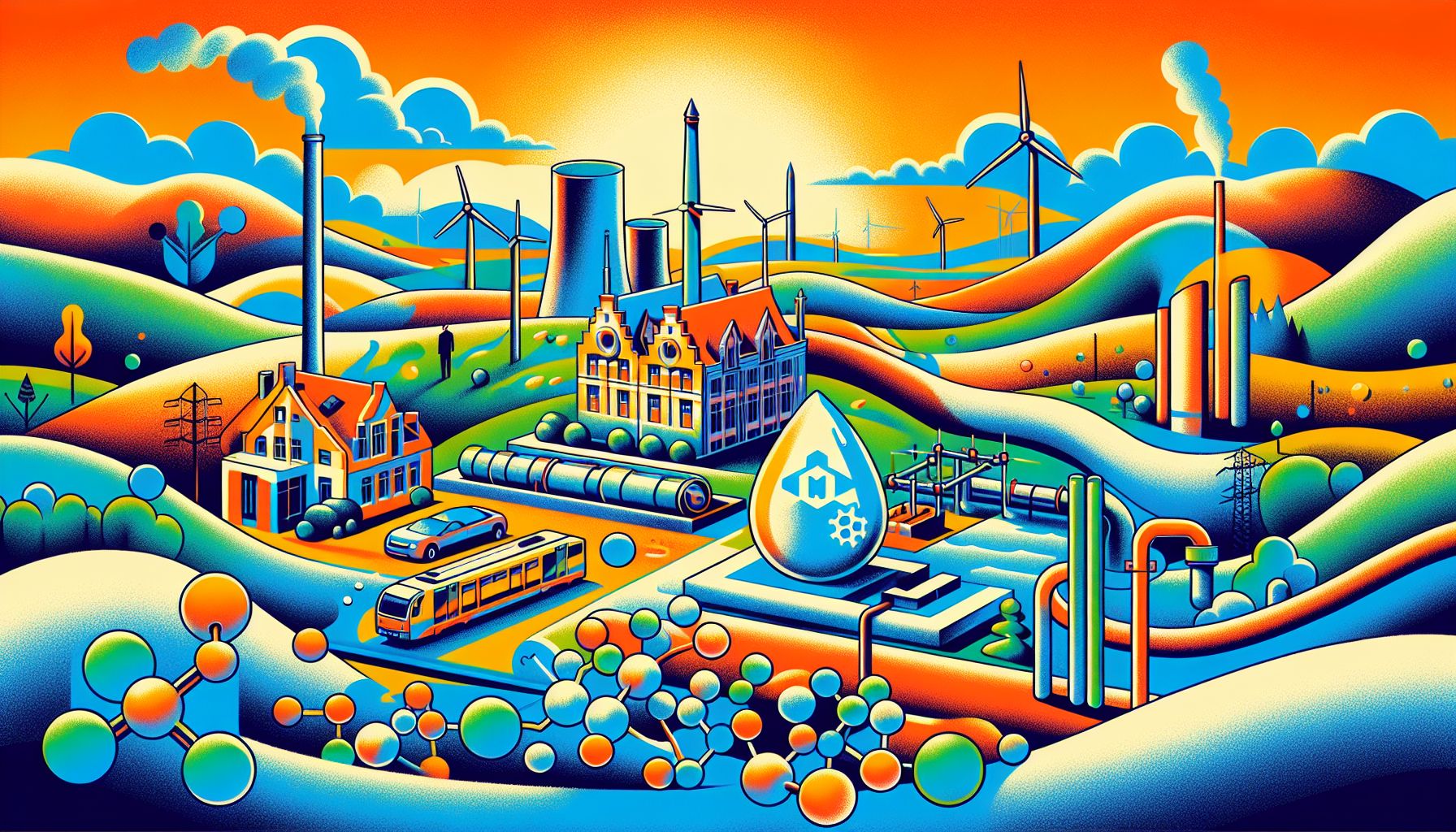Netherlands Debates Hydrogen-Natural Gas Blend for Cleaner Energy

Netherlands, Monday, 11 November 2024.
The Netherlands is scrutinizing the feasibility of mixing hydrogen with natural gas as a cleaner energy solution. While hydrogen offers CO2-free combustion, concerns about infrastructure costs and consumer price impacts are fueling the debate on this potential transition.
Hydrogen’s Promise and the Current Landscape
Hydrogen is increasingly seen as a pivotal component in the transition to cleaner energy solutions. Its combustion results in water vapor rather than carbon dioxide, making it a compelling alternative to traditional fossil fuels. The push towards hydrogen is evident across various sectors, including transportation and industry, where its potential to significantly reduce emissions is being actively explored[1]. However, the integration of hydrogen into existing energy systems presents substantial challenges, particularly in the context of infrastructure compatibility and economic viability.
Technical and Economic Hurdles
The current natural gas infrastructure, primarily designed for methane, faces significant obstacles when adapted for hydrogen. Hydrogen’s unique chemical properties, such as its lower energy content per unit volume and increased tendency to leak, complicate its integration into existing pipelines[2]. Additionally, the costs associated with modifying this infrastructure in the Netherlands could reach between 200 and 300 million euros, a figure that raises concerns about the economic impact on consumers[1]. Despite these challenges, tests in the UK have shown that up to 20% hydrogen can be added to natural gas without requiring major modifications to appliances, suggesting a potential pathway for gradual integration[1].
Regulatory and Environmental Considerations
Regulatory frameworks remain a significant barrier to hydrogen integration. In the Netherlands, it is currently prohibited to add hydrogen to the natural gas network for residential use, with efforts instead focused on industrial and transport applications[1]. This regulatory stance echoes the broader consensus in neighboring countries like Germany, where the costs and complexities of establishing a dedicated hydrogen network are deemed prohibitive[1]. Furthermore, while hydrogen blending could reduce CO2 emissions by approximately 7% with a 20% blend, the overall environmental benefits must be weighed against potential increases in energy prices for consumers[2].
The Path Forward
As the Netherlands grapples with these challenges, stakeholders are urging a cautious approach. The Gasunie, a major player in the Dutch energy sector, has already invested in hydrogen infrastructure with the HyStock project, highlighting a commitment to exploring hydrogen’s potential[1]. However, the debate underscores a critical need for comprehensive policy frameworks that balance environmental goals with economic realities. As global energy markets undergo transformation towards low-carbon solutions, the role of hydrogen will be pivotal, provided that technical, economic, and regulatory hurdles can be effectively addressed[3].

